«Where is the best place to hide a pebble?»
I know that my book reviews consist mostly of the fantasy genre, sometimes romantic comedies. But you may not know that one of my favorite writers is Dan Brown, author of very famous books like The Da Vinci Code and Angels and Demons. That kind of literature always gets me, the adventure of following clues and discovering riddles, especially the direct criticism of humanity and its history. For that reason I did extensive research to find books similar to Dan Brown's stories, and his well-known protagonist, Robert Langdon. That is how I found this saga.
I understand that Steve Berry is following the Dan Brown thread, in other words, several books with different stories, but the same protagonist. And, in this first installment, we follow Cotton Malone in the search for the «Great Legacy» of the Templars, in "The Templar Legacy"✨
«¿Cuál es el mejor lugar para esconder un guijarro?»
Sé que mis reseñas de libros consta mayormente del género de fantasía, algunas veces comedias románticas. Pero quizás no sepan que uno de mis escritores favoritos es Dan Brown, autor de libros muy famosos como El código Da Vinci y Ángeles y Demonios. Ese tipo de literatura siempre me atrapa, la aventura de seguir pistas y descubrir acertijos, especialmente la crítica directa a la humanidad y su historial. Por esa razón hice una extensa investigación para encontrar libros similares a las historias de Dan Brown, y su conocido protagonista, Robert Langdon. Así fue cómo encontré esta saga.
Tengo entendido que Steve Berry sigue el hilo de Dan Brown, es decir, varios libros con historias diferentes, pero el mismo protagonista. Y, en esta primera entrega, seguimos a Cotton Malone en la búsqueda del «Gran Legado» de los Templarios, en Los Caballeros de Salomón✨
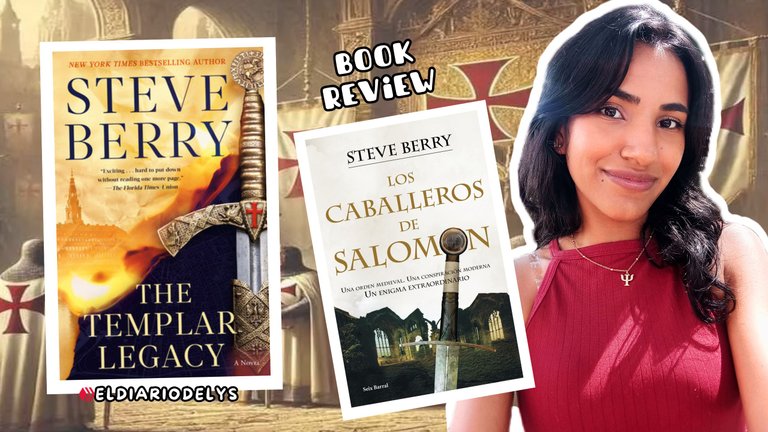
To remind you of a bit of history, just in case you don't know much about Templar lore (which I honestly didn't know much about either):
The Knights Templar were born to facilitate the safe passage of many Christian pilgrims to the Holy Lands. They were the first to be disciplined and considered as an army since Roman times. But over the years they gained political and economic strength, keeping great wealth in their vaults, since aristocratic characters left inheritances or gave donations to the cause. They even worked as bankers, allowing them to be economically independent and self-regulating. Despite being under the order of the Pope, it caused a stir among the clergy, since at that time the Church was suffering hardships, while the Templar lands were gaining power. However, in 1291 the Order lost its purpose when it could no longer continue to protect the Holy Lands, due to the increasing military efficiency of the Muslims. And so it was that in 1307, Philip IV of France, had the Knights Templar arrested, seeking to take their wealth. And with the help of Clement V he was able to “completely” dissolve the Order in 1312.
Curious fact: it is said that Jacques de Molay, the master of the Order at the time, before being burned at the stake, proclaimed the innocence of the Templars and cursed his captors, who within a year died.
Para recordarte un poco de historia, por si acaso no conoces mucho acerca del lore de los templarios (que yo, sinceramente, tampoco conocía mucho):
Los caballeros templarios nacieron para facilitar el camino seguro de muchos peregrinos cristianos hacia Tierras Santas. Fueron los primeros en ser disciplinados y considerados como ejército desde los tiempos de los romanos. Pero con el pasar de los años fueron ganando fuerza política y económica, guardando una gran riqueza en sus bóvedas, dado que personajes de la aristocracia le dejaban herencias o daban donaciones a la causa. E incluso realizaban labores como banqueros, permitiéndoles ser económicamente independientes y autorreguladores. A pesar de estar bajo la orden del Papa, causó revuelo entre el clero, dado que en ese entonces la Iglesia pasaba penurias, mientras que las tierras templarias ganaban poder. Sin embargo, en 1291 la Orden perdió su propósito al no poder continuar protegiendo las Tierras Santas, debido al aumento de la eficacia militar de los musulmanes. Y así fue, como en 1307, Felipe IV de Francia, hizo arrestar a los Caballeros Templarios, buscando abastecerse de las riquezas de los mismos. Y con la ayuda de Clemente V pudo disolver "completamente" la Orden en 1312.
Dato curioso: se dice que Jacques de Molay, el maestre de la Orden en esa época, antes de ser quemado en la hoguera, proclamó la inocencia de los templarios y maldijo a sus captores, los cuales en el plazo de un año fallecieron.
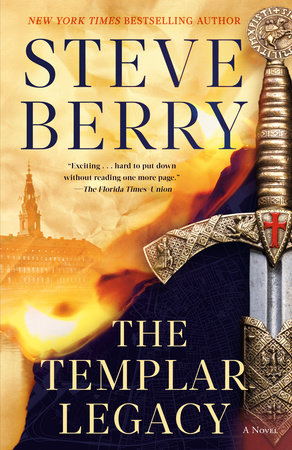 | 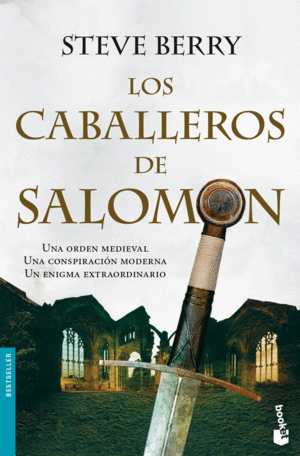 |
|---|
The book begins with a strong prologue. It is not suitable for sensitive people. Generally, stories of this stature are not made for all readers. Both because of the cruelty, transparency and lack of censorship of their narratives, but also because of the subject matter. These plots are not easy to process, and not because the pace of the narrative is heavy (in some cases yes, but not in all), but because of our beliefs and ideologies. We are raised in a certain way, with a pre-established mental scheme, and it is complex to throw it all away, and open your mind to another reality. Which is the general purpose of this literary genre.
Cotton Malone had left behind an important position within the United States intelligence, to devote himself to his passion for books in Denmark. However, as a matter of fate and for supporting an old friend, he becomes involved in an ancient and dangerous religious conspiracy, which obviously has the power to change the fate of mankind. And, also, the veracity of the Holy Gospels. Since this adventure will lead him to question the facts narrated in the New Testament of the Bible, is the truth as it is told? Or did they twist the facts to rule civilization more easily?
El libro comienza con un prólogo fuerte. No es apto para personas sensibles. Generalmente, las historias de esta talla no son hechas para todos los lectores. Tanto por la crueldad, transparencia y falta de censura de sus narrativas, pero también por la temática de la misma. Estas tramas no son fáciles de procesar, y no porque el ritmo de la narración sea pesado (en algunos casos sí, pero no en todos), sino por nuestras creencias e ideologías. Somos criados de cierta manera, con un esquema mental preestablecido, y es complejo tirar todo por la borda, y abrir tu mente a otra realidad. Lo cual es el propósito general de este género literario.
Cotton Malone había dejado atrás un cargo importante dentro de la inteligencia de los Estados Unidos, para dedicarse a su pasión por los libros en Dinamarca. Sin embargo, por cuestiones del destino y por apoyar a una vieja amiga, se ve envuelto en una antigua y peligrosa conspiración religiosa, que, obviamente, tiene el poder de cambiar el destino de la humanidad. Y, ojo, también de la veracidad de los Santos Evangelios. Dado que esta aventura lo llevará a cuestionar los hechos narrados en el Nuevo Testamento de la Biblia, ¿la verdad es tal como la cuentan? ¿O tergiversaron los hechos para gobernar con mayor facilidad a la civilización?
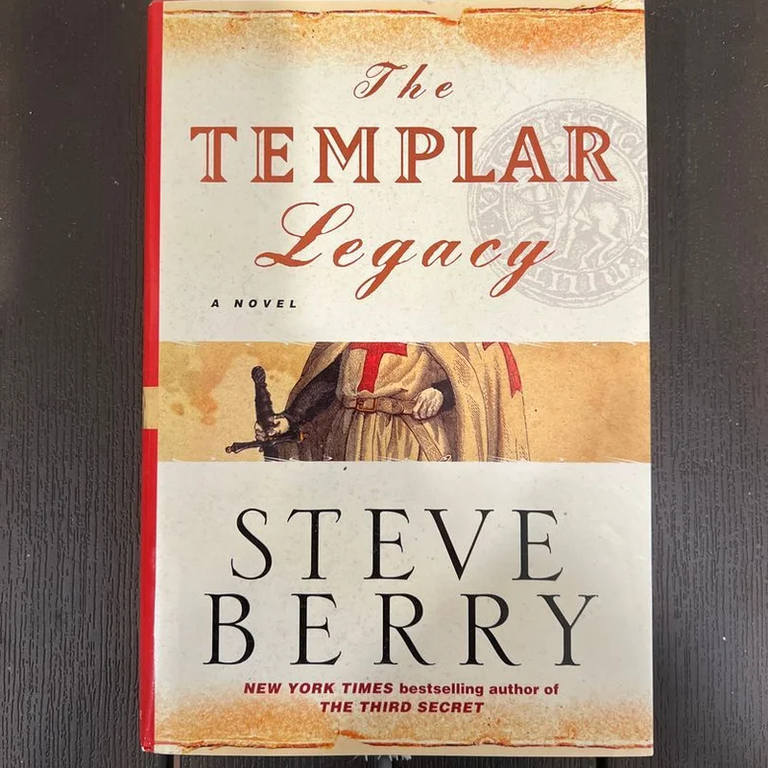
The first chapters of the book involve you directly in the adventure, with no room for explanations. And, without a doubt, it grabs you. It piques your curiosity, intrigues you, gives you the need to know what is going on. I like it when a reading generates those sensations, it is a successful seduction. Although television, movies and streaming companies do a great job creating content that grabs the audience, books always do it in a more interesting way, because they make you the director and producer of a promising script.
The course of the narrative keeps giving us enough details to keep us interested, taking us through different border towns between France and Spain, in the Pyrenees. With quite complex riddles about the history and possible location of the «Great Templar Legacy», but especially outstanding is the quest to clear the name of these Knights, to restore their honor. And in real life many have sought that treasure, especially for its riches, but it is important to mention that, according to history, there remains something more significant than gold: knowledge. These men were imprisoned for the information they possessed, which depending on the hands in which it fell could do good or great harm to humanity.
Los primeros capítulos del libro te involucran directamente a la aventura, no dan espacios para explicaciones. Y, sin duda, te atrapa. Te pica la curiosidad, te intriga, te da la necesidad de saber qué está sucediendo. Me gusta cuando una lectura me genera esas sensaciones, es una seducción exitosa. Aunque la televisión, cine y las empresas de streaming hacen un gran trabajo creando contenido que atrapa al público, los libros siempre lo hacen de una manera más interesante, porque te convierten en director y productor de un guion prometedor.
El transcurso de la narración se mantiene dándonos detalles suficientes para mantenernos interesados, llevándonos por distintos pueblos fronterizos entre Francia y España, en los Pirineos. Con acertijos bastantes complejos acerca de la historia y posible ubicación del «Gran Legado Templario», pero especialmente sobresale la búsqueda de limpiar el nombre de estos Caballeros, devolverles su honor. Y en la vida real muchos han buscado ese tesoro, especialmente por sus riquezas, pero es importante mencionar que, de acuerdo a la historia, allí permanece algo más significativo que el oro: el conocimiento. Estos hombres fueron encarcelados por la información que poseían, que dependiendo de las manos en que caiga podría hacer bien o mucho mal a la humanidad.
For that reason, it is complicated to choose a side in the book, with respect to the Order. There are characters who want to find this information and expose it to the world, with the purpose of breaking the religious system, and demonstrate the injustice done to their brothers centuries ago. On the other hand, there are also characters who want to find this treasure, but keep hidden the information they can find.
From my point of view, I consider that both are right in their objectives. Following the narrative of the plot, there were many innocent people accused of heresy and killed by a Church to which they were loyal and shared the same faith. It would not be fair for the world to continue believing the same lie. But it is perceptible that the character involved does not wish to demonstrate that truth for honorable intentions. While from the other command, there is greater clarity with respect to his intentions, and, however, their weakness is also obvious.
And, the main protagonist, Cotton, was only left in the middle of a conflict he barely understands😅 As a librarian, and former lawyer, information and justice is very important to him, and this is a transcendental secret that cannot be ignored once you know of its existence, so Cotton just goes with the flow. And we, as readers, go along just like him, just reading to find out how far it goes.
Por esa razón es complicado escoger un bando en el libro, con respecto a la Orden. Hay personajes que quieren encontrar esta información y exponerla al mundo, con el propósito de romper el Sistema religioso, y demostrar la injusticia que les hicieron a sus hermanos siglos atrás. Por otro lado, también hay personajes que aunque desean encontrar este tesoro, pero mantener oculta la información que puedan encontrar.
Desde mi punto de vista, considero que ambos tienen razón en sus objetivos. Siguiendo la narración de la trama, fueron muchos los inocentes acusados de herejía y asesinados por una Iglesia a la que ellos le eran leales y compartían la misma fe. No sería justo que el mundo siguiera creyendo la misma mentira. Pero es perceptible que el personaje implicado no desea demostrar esa verdad por intenciones honorables. Mientras que desde el otro mando, existe mayor claridad con respecto a sus intenciones, y, sin embargo, también es obvio su debilidad.
Y, el protagonista principal, Cotton, solo quedó en la mitad de un conflicto que apenas comprende😅 Como bibliotecario, y antiguo abogado, para él es muy importante la información y justicia, y este es un secreto trascendental que no se puede ignorar una vez que conoces de su existencia, así que Cotton solo sigue la corriente. Y nosotros, como lectores, vamos igual que él, solo leyendo para saber hasta donde se llega.
It is a morality lesson; it makes it clear that our world is not about «good» and «bad», life and history itself is so complex that it is difficult to define it with only two perspectives. For that reason, it kept me in expectation and tension of wanting to get to the end, and to know what the Templar legacy was.
However, it takes time to get there. There is one point in the book that felt a bit heavy for me, as I felt the story wasn't moving forward, that it was given too many twists and turns, and some of the clues were complex to understand. There is an inconsistency between repeating the same clues, lots of action scenes, and a deadlock where you feel stuck. Also, the fact that the main character doesn't know about the story he was getting involved in was somewhat tedious, because from his perspective he couldn't clarify anything. The good thing is that the book is narrated in different perspectives, and with the other characters you do get a better understanding of the plot. Likewise, it also creates so many expectations that you are motivated to continue reading, it becomes a necessity to know how everything will culminate.
Es una clase de moralidad; deja claro que nuestro mundo no es acerca de lo «bueno» y «malo», la vida y la misma historia es tan compleja que es difícil definirlas con solo dos perspectivas. Por esa razón me mantuvo en expectativas y tensión de querer llegar al final, y saber qué era el legado templario.
No obstante, llegar allí toma su tiempo. Hay un punto en el libro que para mí se sintió un poco pesado, dado que percibía que la historia no avanzaba, que se la daba muchas vueltas a un mismo asunto, y algunas pistas eran complejas de entender. Hay una inconsistencia entre la repetición de los mismos indicios, muchas escenas de acción, y un punto muerto en que te sientes atascado. Además, el hecho de que el protagonista no conozca acerca de la historia en que se estaba involucrando fue un tanto tedioso, porque desde su perspectiva no podía aclarar nada. Lo bueno es que el libro es narrado en distintas perspectivas, y con los otros personajes sí se puede comprender mejor la trama. Así mismo, también se crean tantas expectativas que te motivas a continuar leyendo, se convierte en una necesidad saber cómo culminará todo.
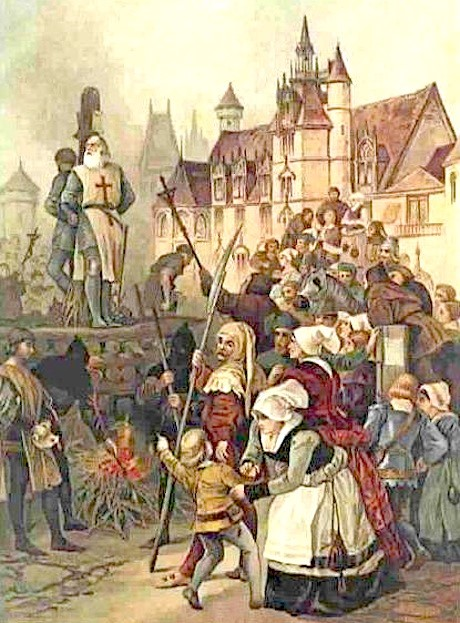
What I love about this genre is that many times you don't distinguish what is real and what is fiction. Generally, the stories are based on real events, but a lot of exaggerated details are added to give the book a basis. Dan Brown's books make you question history, others like Trojan Horse make you question reality, I love that feeling that you can imagine that these facts are true.
Even I didn't know the full history of the Templars, so when the book started to go in depth about them it made me curious, and I did some research, I wanted to know if it was true what I was reading... and yes, the facts mentioned in the book are true, according to historical records. That increased my curiosity of “can this exist in real life? Are things really like this?”.
And yes, it may be just fiction, it may have a hidden truth in those words, honestly the facts they expose here have so many possibilities of being false or true. However, even if their narrative is contrary to the word of the Catholic Church today, they always maintain respect for God and Jesus Christ, his mission in this earthly world, the veracity of his work, and the importance of faith🍃
Lo que me encanta de este género es que muchas veces no distingues qué es real y qué es ficción. Generalmente, las historias están basadas en hechos reales, pero se le agregan bastantes detalles exagerados para darle una base al libro. Los libros de Dan Brown te hacen cuestionar la historia, otros como El Caballo de Troya te cuestionan la realidad, amo esa sensación de qué puedas imaginar que esos hechos son ciertos.
Incluso yo no conocía la historia completa de los templarios, así que cuando el libro comenzó a profundizar acerca de ellos me generó curiosidad e investigué, quería saber si era verdad lo que estaba leyendo… y sí, los datos que se mencionan en el libro son verdaderos, de acuerdo a los registros históricos. Eso aumentó mi curiosidad de "¿esto puede existir en la vida real? ¿Las cosas son realmente así?".
Y sí, puede que sea solo ficción, puede que tengan una verdad oculta esas palabras, sinceramente los hechos que exponen aquí tienen tantas posibilidades de ser falso o verdadero. Sin embargo, aunque su narración sea contrario a la palabra de la Iglesia Católica actual, siempre se mantiene el respeto hacia Dios y Jesucristo, su misión en este mundo terrenal, la veracidad de su labor, y la importancia de la fe🍃
The Templar Legacy probably doesn't rank among my favorite books, but that doesn't mean I didn't enjoy it. After so much fantasy and romance, I wanted something different, and this story gave me just what I was looking for. I liked that web of secrets, history, politics and religion, and that message of using our critical thinking, questioning our reality. Not to blindly believe in anyone just because they have a degree of power. You need evidence, debate, and especially, don't fall into fanaticism.
Do you know this book?✨ You can recommend me other books that are similar, with adventure stories, secrets, and riddles😌.
Probablemente, Los caballeros de Salomón no entre en mis libros favoritos, pero eso no significa que no lo haya disfrutado. Después de tanta fantasía y romance quería algo diferente, y esta historia me dio justamente lo que estaba buscando. Me gustó esa red de secretos, historia, política y religión, y ese mensaje de utilizar nuestro pensamiento critico, cuestionar nuestra realidad. No creer a ciegas en cualquier persona solo porque esta tenga un grado de poder. Es necesario las pruebas, debatir, y especialmente, no caer en el fanatismo.
¿Conocen este libro?✨ Pueden recomendarme otros libros que sean similares, con historias de aventura, secretos y acertijos😌
«Todos nosotros llevamos la imagen de Dios, todos somos merecedores de ser amados, todos podemos crecer en el espíritu de Dios»

Posted Using INLEO
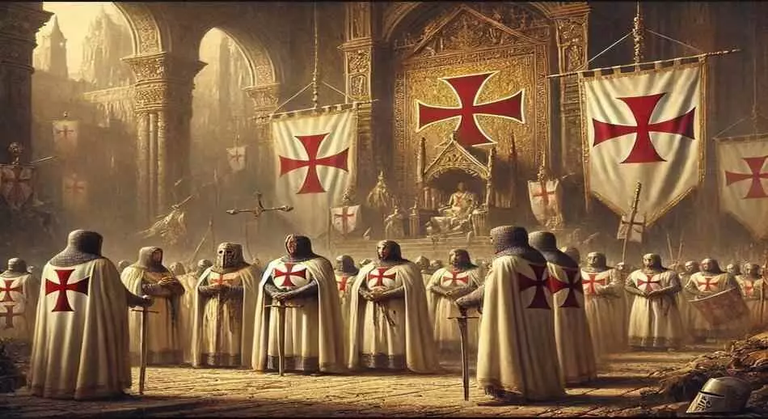
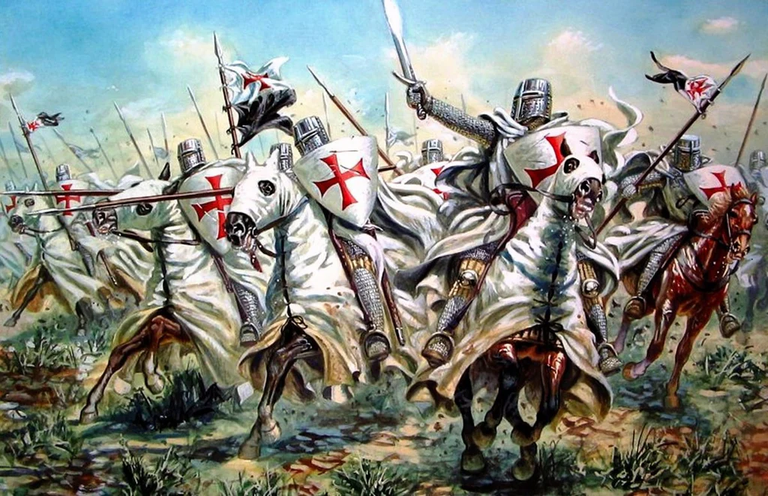
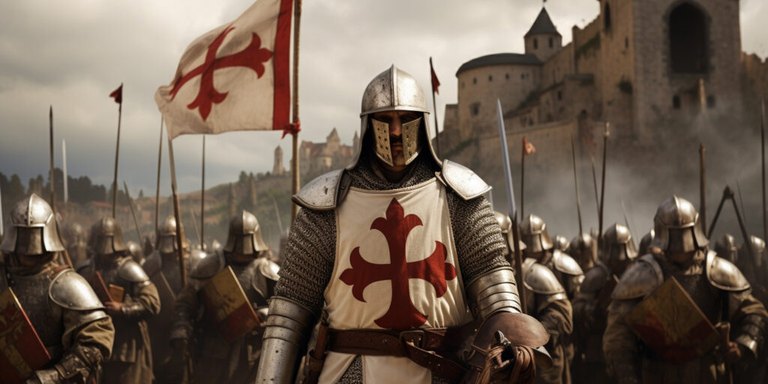
~~~ embed:1877856274030694837?t=sANVcyHPOwkD8ddLtdcA1A&s=19 twitter metadata:S2VybHlzVmllbG1hfHxodHRwczovL3R3aXR0ZXIuY29tL0tlcmx5c1ZpZWxtYS9zdGF0dXMvMTg3Nzg1NjI3NDAzMDY5NDgzN3w= ~~~
Dan Brown is one of my favorite authors, especially for those stories with historical symbols that lead the reader into a magical, but at the same time substantial epic, with many Easter eggs and enigmas. I don't know Steve Barry, but if he follows Dan's line, then his novels are a must read. I like this one you review for its mosnastic context. I'm a fan of the Knights Templar, or at least the history surrounding their epic. When I can I will take a look at this book.